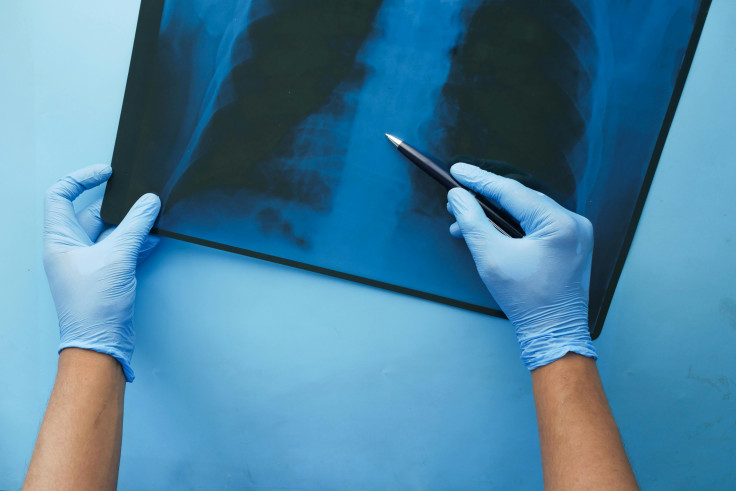Legionaire's Disease Outbreak In UK Update: Symptoms To Watch Out As 25 People Now Infected
NHS urges public to recognise early warning signs of Legionnaires' disease

An outbreak of Legionnaires' disease has been reported with 25 confirmed infections, raising public health concerns across the UK.
Authorities have launched investigations into potential sources of contamination in water systems while hospitals are treating patients with severe symptoms. The Health and Safety Executive (HSE) and NHS have urged the public to be aware of the early warning signs of the illness and to seek medical advice promptly if affected.
What Is Legionnaires' Disease?
According to Mayo Clinic, Legionnaires' disease is a serious lung infection caused by the Legionella bacteria. It develops after inhaling tiny water droplets contaminated with the bacteria, which can multiply in poorly maintained water systems such as cooling towers, hot tubs, showers and air conditioning units.
Although not common, Legionnaires' disease can be life-threatening if left untreated. According to NHS guidance, the illness requires urgent medical attention, particularly in people who already have underlying health conditions. The disease is not spread directly from person to person, making environmental exposure the primary risk factor.
Legionnaires' Disease Symptoms to Watch For
Public health officials have released guidance to help people identify the signs of Legionnaires' disease. Early symptoms often resemble flu and can easily be overlooked.
Common symptoms include:
- A high fever and chills
- A persistent cough, which may be dry or produce mucus
- Muscle aches, headaches and fatigue
- Shortness of breath and chest pain
- Gastrointestinal problems such as nausea, vomiting or diarrhoea
- In more serious cases, confusion or mental changes
Doctors advise that anyone experiencing these symptoms, particularly after visiting spas, hotels or large public facilities with complex water systems, should contact their GP or NHS 111 without delay.
Details of the Outbreak
The outbreak has 25 new confirmed cases, with several patients requiring hospital care. Public health teams are conducting water testing in local facilities, including cooling towers and industrial sites, to identify the exact source of contamination.
The Health and Safety Executive (HSE) has confirmed that inspections are underway to ensure compliance with strict water management regulations. Several water systems have been sanitised as a precaution, while samples are analysed for traces of Legionella bacteria.
Officials have also stressed that the situation is under close monitoring, with further updates expected from health authorities.
Who Is Most at Risk?
While Legionnaires' disease can affect anyone, certain groups are more vulnerable to severe infection. According to HSE, these include:
- Adults over the age of 45
- Current or former smokers
- Heavy alcohol users
- Individuals with chronic lung conditions such as COPD or asthma
- People with weakened immune systems, including those undergoing cancer treatment or organ transplants
Health experts stress that awareness among at-risk groups is crucial. Because the disease is not contagious, the greatest danger lies in exposure to contaminated water systems rather than direct human contact.
UK Context and Preventive Measures
Official data shows that hundreds of cases of Legionnaires' disease are confirmed across England and Wales each year, with outbreaks often linked to inadequate maintenance of large water systems.
Under HSE regulations, building owners and employers have a legal duty to assess and control the risk of Legionella. This includes carrying out regular risk assessments, water testing and system cleaning. Previous enforcement action has led to heavy fines for companies found to have neglected proper maintenance.
Health officials have reminded businesses to comply with the HSE's Approved Code of Practice to prevent further outbreaks. The public is also encouraged to remain vigilant and report any concerns about water hygiene in public facilities.
Treatment and Recovery
Patients diagnosed with Legionnaires' disease are usually admitted to hospital, where they receive intravenous antibiotics and oxygen therapy if breathing difficulties occur. Recovery can take several weeks, especially for older adults and those with pre-existing health problems.
With timely medical treatment, the majority of patients make a full recovery. However, public health experts continue to emphasise that prevention through proper water system management remains the most effective way to stop future outbreaks.
© Copyright IBTimes 2025. All rights reserved.





















